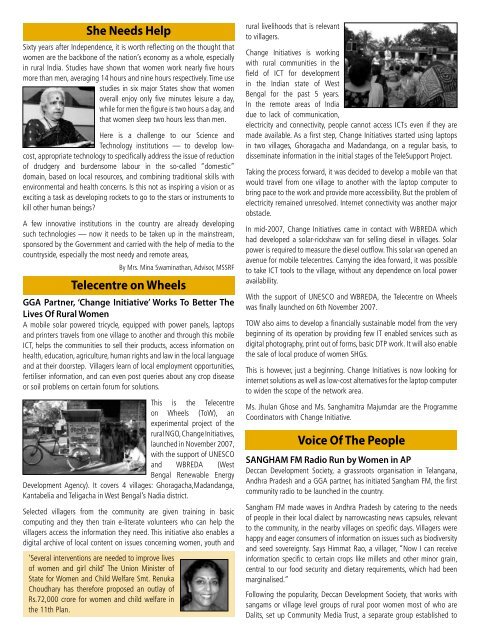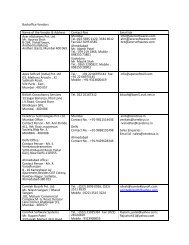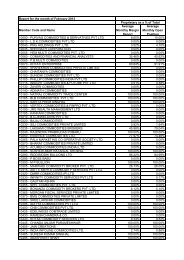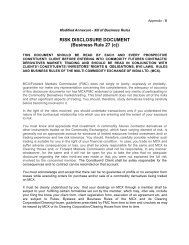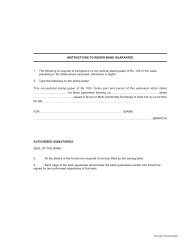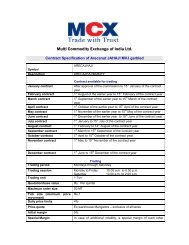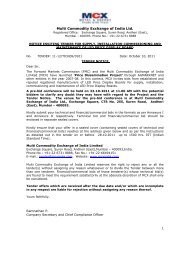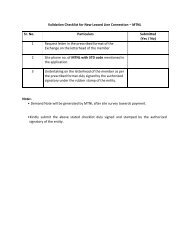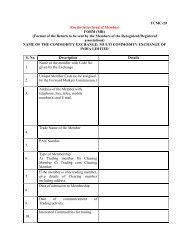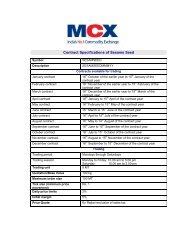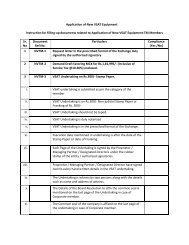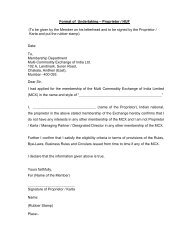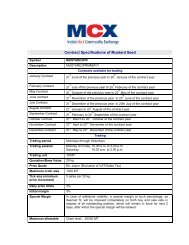You also want an ePaper? Increase the reach of your titles
YUMPU automatically turns print PDFs into web optimized ePapers that Google loves.
She Needs HelpSixty years after Independence, it is worth reflecting on the thought thatwomen are the backbone of the nation’s economy as a whole, especiallyin rural India. Studies have shown that women work nearly five hoursmore than men, averaging 14 hours and nine hours respectively. Time usestudies in six major States show that womenoverall enjoy only five minutes leisure a day,while for men the figure is two hours a day, andthat women sleep two hours less than men.Here is a challenge to our Science andTechnology institutions — to develop lowcost,appropriate technology to specifically address the issue of reductionof drudgery and burdensome labour in the so-called “domestic”domain, based on local resources, and combining traditional skills withenvironmental and health concerns. Is this not as inspiring a vision or asexciting a task as developing rockets to go to the stars or instruments tokill other human beings?A few innovative institutions in the country are already developingsuch technologies — now it needs to be taken up in the mainstream,sponsored by the Government and carried with the help of media to thecountryside, especially the most needy and remote areas,By Mrs. Mina Swaminathan, Advisor, MSSRFTelecentre on WheelsGGA Partner, ‘Change Initiative’ Works To Better TheLives Of Rural WomenA mobile solar powered tricycle, equipped with power panels, laptopsand printers travels from one village to another and through this mobileICT, helps the communities to sell their products, access information onhealth, education, agriculture, human rights and law in the local languageand at their doorstep. Villagers learn of local employment opportunities,fertiliser information, and can even post queries about any crop diseaseor soil problems on certain forum for solutions.This is the Telecentreon Wheels (ToW), anexperimental project of therural NGO, Change Initiatives,launched in November 2007,with the support of UNESCOand WBREDA (WestBengal Renewable EnergyDevelopment Agency). It covers 4 villages: Ghoragacha,Madandanga,Kantabelia and Teligacha in West Bengal’s Nadia district.Selected villagers from the community are given training in basiccomputing and they then train e-literate volunteers who can help thevillagers access the information they need. This initiative also enables adigital archive of local content on issues concerning women, youth and‘Several interventions are needed to improve livesof women and girl child’ The Union Minister ofState for Women and Child Welfare Smt. RenukaChoudhary has therefore proposed an outlay ofRs.72,000 crore for women and child welfare inthe 11th Plan.rural livelihoods that is relevantto villagers.Change Initiatives is workingwith rural communities in thefield of ICT for developmentin the Indian state of WestBengal for the past 5 years.In the remote areas of Indiadue to lack of communication,electricity and connectivity, people cannot access ICTs even if they aremade available. As a first step, Change Initiatives started using laptopsin two villages, Ghoragacha and Madandanga, on a regular basis, todisseminate information in the initial stages of the TeleSupport Project.Taking the process forward, it was decided to develop a mobile van thatwould travel from one village to another with the laptop computer tobring pace to the work and provide more accessibility. But the problem ofelectricity remained unresolved. Internet connectivity was another majorobstacle.In mid-2007, Change Initiatives came in contact with WBREDA whichhad developed a solar-rickshaw van for selling diesel in villages. Solarpower is required to measure the diesel outflow. This solar van opened anavenue for mobile telecentres. Carrying the idea forward, it was possibleto take ICT tools to the village, without any dependence on local poweravailability.With the support of UNESCO and WBREDA, the Telecentre on Wheelswas finally launched on 6th November 2007.TOW also aims to develop a financially sustainable model from the verybeginning of its operation by providing few IT enabled services such asdigital photography, print out of forms, basic DTP work. It will also enablethe sale of local produce of women SHGs.This is however, just a beginning. Change Initiatives is now looking forinternet solutions as well as low-cost alternatives for the laptop computerto widen the scope of the network area.Ms. Jhulan Ghose and Ms. Sanghamitra Majumdar are the ProgrammeCoordinators with Change Initiative.Voice Of The PeopleSANGHAM FM Radio Run by Women in APDeccan Development Society, a grassroots organisation in Telangana,Andhra Pradesh and a GGA partner, has initiated Sangham FM, the firstcommunity radio to be launched in the country.Sangham FM made waves in Andhra Pradesh by catering to the needsof people in their local dialect by narrowcasting news capsules, relevantto the community, in the nearby villages on specific days. Villagers werehappy and eager consumers of information on issues such as biodiversityand seed sovereignty. Says Himmat Rao, a villager, “Now I can receiveinformation specific to certain crops like millets and other minor grain,central to our food security and dietary requirements, which had beenmarginalised.”Following the popularity, Deccan Development Society, that works withsangams or village level groups of rural poor women most of who areDalits, set up Community Media Trust, a separate group established to


